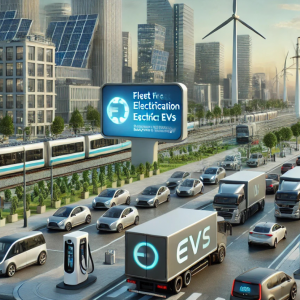Great! Let’s begin with the first article for the new keyword. Here’s Article 1: Electric Vehicle Connector Market (600 words, hyperlink in the second paragraph):
Electric Vehicle Connector Market
Introduction
The rapid rise of electric vehicles (EVs) worldwide has created a robust demand for efficient charging solutions. Among the key enablers of EV adoption are connectors, which ensure secure and seamless transfer of electricity from charging stations to vehicle batteries. As EV penetration grows, the electric vehicle connector market has emerged as a critical segment of the automotive ecosystem, driven by technological innovations, government policies, and changing consumer preferences.
Market Overview
The Electric Vehicle Connector Market is witnessing significant growth as both public and private sectors invest heavily in charging infrastructure. Connectors are designed to handle varying charging capacities, from standard to ultra-fast charging, and they play a pivotal role in enhancing user convenience and energy efficiency. With EV adoption expanding across regions, the need for universal connector standards and high-power solutions is becoming increasingly important.
Key Drivers of Growth
One of the primary drivers of the electric vehicle connector market is the global push for sustainable mobility. Governments are incentivizing EV adoption through subsidies, tax benefits, and infrastructure development, fueling demand for reliable connectors. Rapid urbanization and the rising popularity of shared mobility services are also increasing the usage of EVs, which in turn supports connector demand.
In addition, advances in battery technology have allowed faster charging, necessitating connectors that can handle high voltage and current safely. Innovations in smart charging solutions, including vehicle-to-grid (V2G) technologies, are further enhancing the market’s potential by integrating EVs into wider energy networks.
Regional Insights
Asia-Pacific is leading the global market, with China, Japan, and South Korea at the forefront of EV adoption. The presence of strong automotive industries and aggressive government policies in these countries has created a robust demand for charging connectors. Europe follows closely, with stringent carbon emission regulations and the European Union’s commitment to green mobility driving infrastructure expansion. North America is also witnessing rapid growth, with rising investments in EV charging networks and increasing consumer awareness.
Emerging regions, including Latin America and the Middle East, are expected to see steady growth as EV adoption expands beyond mature markets. These regions present significant opportunities for connector manufacturers, particularly in affordable, scalable charging solutions.
Challenges in the Market
Despite the positive outlook, the electric vehicle connector market faces certain challenges. The lack of global standardization in connector types can cause interoperability issues for consumers. Additionally, the high cost of fast-charging infrastructure may hinder widespread deployment in some regions. Technical challenges, such as heat management and safety at high voltages, also require continuous innovation.
Future Outlook
Looking ahead, the electric vehicle connector market is set for strong growth as EV adoption accelerates worldwide. The shift toward ultra-fast charging, wireless charging technologies, and standardized global protocols will shape the market’s trajectory. Collaborations between automakers, energy companies, and technology providers are expected to play a crucial role in developing innovative, scalable solutions.
Manufacturers that can balance efficiency, safety, and affordability in their connector designs are likely to lead the market. Furthermore, sustainability will play a key role, with increasing focus on recyclable materials and energy-efficient production methods.
Conclusion
In conclusion, the electric vehicle connector market is positioned as a cornerstone of the EV ecosystem. By enabling safe, reliable, and efficient charging, connectors support the global transition toward sustainable transportation. With rising investments in infrastructure, technological advancements, and government support, the market is poised for sustained expansion, driving the future of mobility.











